Fritextsökning
Artiklar per år
Innehållstyper
-

Anders Blanck about his 17 years at Lif: “The industry is enjoying greater public trust now"
. However, I will turn 56 this autumn, and if I’m going to do something else in my professional life, now is the time,” he says.
-

Genes from Neanderthals can affect the correct drug dosage
A fifth of all Europeans carry gene variants inherited from Neanderthals, which cause certain drugs to break down more slowly. This may have implications for the drug doses they should take.
-

Anna Törner: Kalashnikovs in a new guise
Thanks to resisting European regulatory authorities, Europe has been spared the opioid epidemic. In the 1960s, the situation was the opposite as the American pharmaceutical authority, the Food and Drug Administration (FDA), refused to approve thalidomide (Neurosedyn), writes Anna Törner in a column.
-
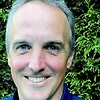
Han får internationellt KI-pris: "Haft ett påtagligt inflytande på forskare världen över"
Professor Kevin Eva vid University of British Colombia i Kanada har tilldelats Karolinska institutets pris för forskning i medicinsk pedagogik. Enligt motiveringen har han haft djupgående påverkan på en hel generation av utbildare och forskare inom området.
-
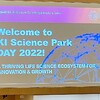
Lucy Robertshaw: Did you know Stockholm wants to be in top 5 in the world for Life Sciences?
Karolinska Institutet Solna Campus has certainly become the next “Kendall Square”, writes Lucy Robertshaw in a column.
-

Novartis plan: att knoppa av Sandoz
Den schweiziska läkemedelsjätten Novartis planerar att knoppa av sin generika- och biosimilardivision Sandoz och göra den till ett fristående bolag.
-

Sweden is heavily criticised for not ordering Covid vaccine
Valneva and the EU Commission have entered into an agreement for 1.25 million doses of the company’s Covid vaccine, but Sweden has not placed an order.
-
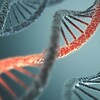
Newly discovered gene variant linked to protection against abdominal obesity
American researchers believe they have identified a rare gene mutation that protects against abdominal obesity and metabolic syndrome. The ambition is that the discovery will lead to new treatments that can help reduce the risk of type 2 diabetes
-

Amorphous materials take centre stage when Orexo develops new formulations
Swift resolution but with maintained stability. Orexo’s new drug delivery platform tackles the problem of amorphous materials. “Our technology has the positive properties of the material, and it also cracks some of the problems,” says the company’s
-

Pilotstudie: Implantat från grishud alternativ till donerade hornhinnor
Linköpingsforskare har utvecklat ett implantat byggt på protein från grishud som efterliknar den mänskliga hornhinnan. Positiva resultat presenteras nu från en pilotstudie.
-
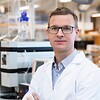
Amorfa material i centrum när Orexo tar fram nya formuleringar
Snabb upplösning, men med bibehållen stabilitet. Orexos nya drug delivery-plattform tar itu med problematiken hos amorfa material. "Vår teknologi har de positiva egenskaperna hos materialet, och kommer samtidigt runt en del av problemen", säger bolagets forsknings- och utvecklingschef Robert Rönn.
-

BioVentureHub CEO: “Companies with a high degree of interaction achieve greater success”
For the first time since its inception, AstraZeneca’s BioVentureHub can now recruit new companies, as some of its tenants have grown significantly and are leaving the hub. This is the message from the biohub’s CEO Magnus Björsne in an interview, in which
-

Stockholm missade internationell kongress med tre röster
Stockholm ansökte om att bli värd för den internationella kongressen IUPESM 2028. Men huvudstaden föll på målsnöret.
-

Tablet treatment for hair loss approved in the USA
The US Drug Administration has given a thumbs up for the first tablet treatment for spotty hair loss.
-
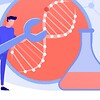
Collaboration for a simpler production of gene therapies launched
A collaboration between universities and companies aims at providing better production methods for the development of gene therapies. The initiative is led by Johan Rockberg, Professor at KTH.
-

Study: Our behaviour may have been guided by wishful thinking during the pandemic
A new study suggests that we systematically underestimate health risks if and when it suits us. This was especially true during the pandemic, as our risk assessments may have been guided by wishful thinking rather than a rational perception of the risks.
-

Björn Arvidsson: “We need robust and recognized ecosystems for continued competitiveness”
“We have idea carriers and excellent innovation opportunities, and now we must invest in creating ecosystems that provide them with even better growth opportunities,” Björn Arvidsson writes in a column.
-
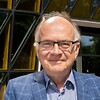
Göran Stiernstedt: “We are the world’s worst at continuity”
. “It makes me extremely frustrated,” he says.
-
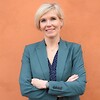
Marie Gårdmark: New incentives for orphan products on its way
"Let’s hope that the learnings from development of new therapies for rare diseases will spill over to more common conditions, orphan products paving the wave for drug development in a broader context", writes Marie Gårdmark in a column.
-

Tablettbehandling mot håravfall godkänns i USA
Den första tablettbehandlingen mot fläckvis håravfall har fått tummen upp av den amerikanska läkemedelsmyndigheten FDA.
-
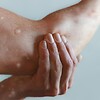
Regeringen vill föra in apkoppor i smittskyddslagen
Den 20 maj blev apkoppor klassad som allmänfarlig sjukdom. Nu har regeringen beslutat om ett lagförslag som gör att sjukdomen blir allmänfarlig sjukdom i smittskyddslagen.
-

Nanexa flyttar in i nya lokaler – ska få bolaget att växa
Igår invigdes Nanexas nya pilotanläggning i Uppsala. Det 300 kvadratmeter stora renrummet gör anläggningen unik, menar bolagets vd David Westberg.
-

Startup-bolaget vill bli nästa Olink
Inte ens ett år gamla har Rarity Bioscience fått anslag från Swelife och Medtech4health. Nu hoppas vd:n Linus Bosaeus att deras teknik för detektion av mutationer i blodprov hos cancerpatienter ska nå laboratorier redan nästa år.
-

A growing industry in Denmark: “One new life science company a week”
The life science sector in eastern Denmark continues to grow in the number of employees, as well as the number of companies. An emerging problem is the shortage of labour, a new report reveals.